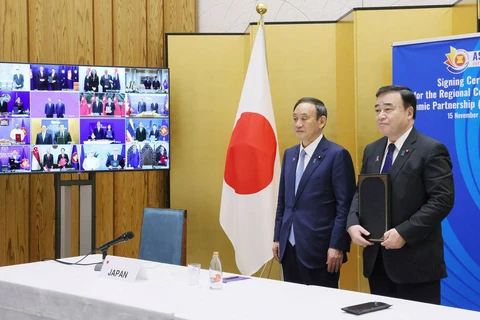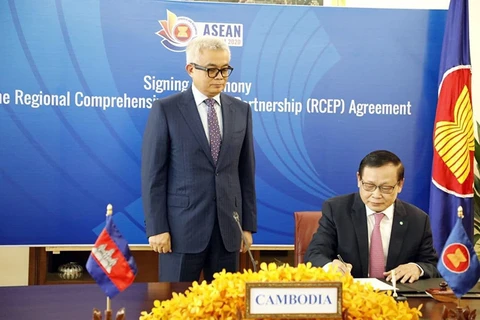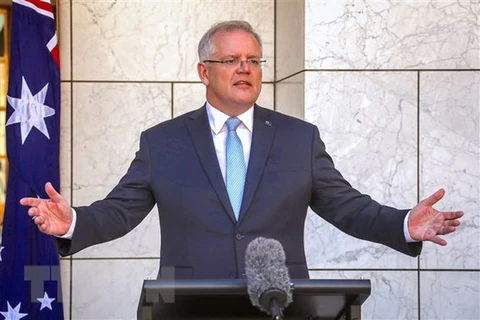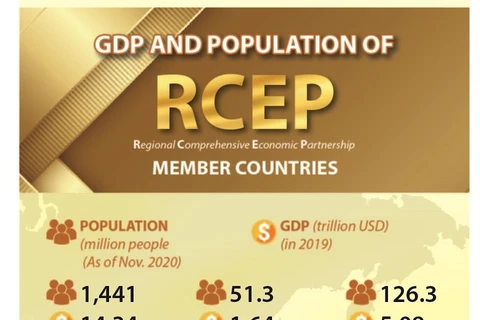 Prime Minister Nguyen Xuan Phuc (left) and Minister of Industry and Trade Tran Tuan Anh at the signing ceremony of the Regional Comprehensive Economic Partnership (RCEP) in Hanoi on November 15. (Photo: VNA)
Prime Minister Nguyen Xuan Phuc (left) and Minister of Industry and Trade Tran Tuan Anh at the signing ceremony of the Regional Comprehensive Economic Partnership (RCEP) in Hanoi on November 15. (Photo: VNA)Hanoi (VNA) – Foreign media outlets have run various headlines on the signing of the world’s largest trade deal – the Regional Comprehensive Economic Partnership (RCEP), with ASEAN at the centre during the grouping’s summit virtually hosted by Vietnam as ASEAN 2020 Chair last week.
Its members comprise the 10 ASEAN member states and Australia, China, Japan, New Zealand, and the Republic of Korea, which together accounts for a third of the global population and 29 percent of the world’s Gross Domestic Products (GDP).
The pact aims to liberalise trade and investment across the Asia-Pacific region by progressively lowering tariffs and cutting red tape, as well as laying out new rules on government procurement, competition policy and e-commerce, said South China Morning Post.
The Hong Kong-based newspaper quoted Stuart Tait, Asia-Pacific regional head of commercial banking at HSBC, as saying that the RCEP may prove to be the tonic Asia needs to recover from the COVID-19-induced slump.
“Intra-Asian trade, which is already larger than Asia’s trade with North America and Europe combined, will continue to power global economic growth and pull the economic centre of gravity towards Asia,” Tait said.
The Asia Times said the trade pact is designed to reduce costs and time for companies and traders by allowing them to export their wares to any signatory nation without meeting separate requirements for each country. It is expected to come into force by 2021.
Significantly, the RCEP represents the first-ever free trade agreement among China, Japan and the RoK, Asia’s industrialised economic powerhouses, it said.
It further noted that three Northeast Asian nations have been in talks since 2012 about forging a trilateral free trade pact with little progress towards a deal in recent years as geopolitical rivalry has intensified.
The pact is not only expected to help ASEAN nations to recover next year from the pandemic’s economic devastation, it also symbolically highlights the importance of the region in what some analysts still believe will become known as the “Asian Century.”
Forecasts suggest that the ASEAN bloc could be the fourth-largest economy in the world by the end of this decade. The region had a combined GDP of 2.57 trillion USD last year.
Cambodia's Khmer Times on November 16 stated that as an active and responsible member, Vietnam has made great contributions to ASEAN. "Vietnam had selected the theme “Cohesive and Responsive” for ASEAN 2020, expressing the chair’s desire for a united Asean to stand firm against the impact of the international and regional situation."
Russia's Sputnik news agency said that Vietnam has successfully fulfilled its task as ASEAN Chair in 2020, with its thoughtful preparation and selection of goals and priorities, leaving many important marks./.
VNA
























